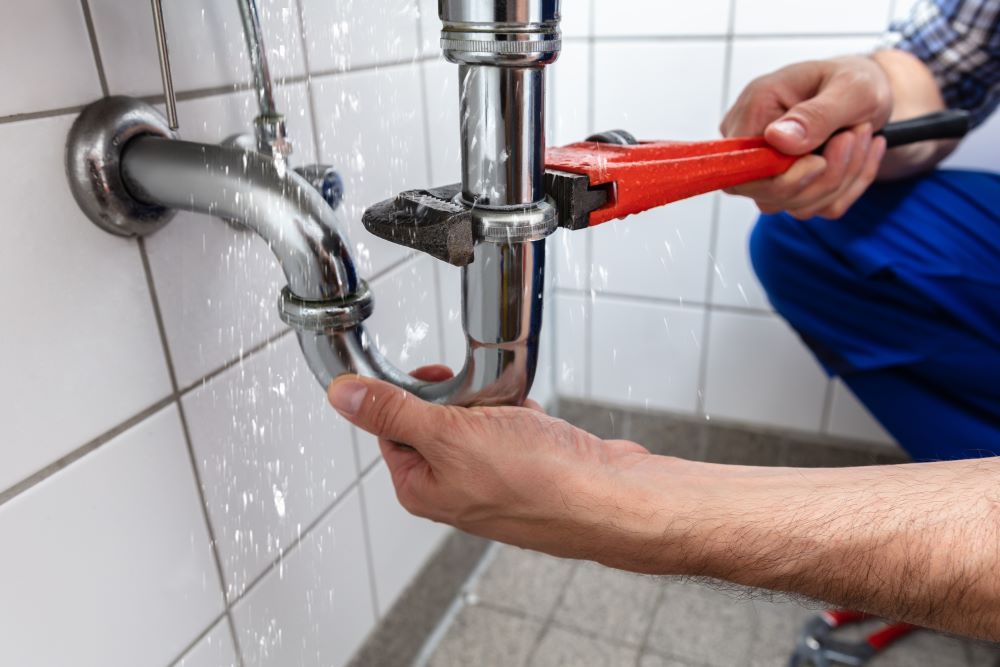Oftentimes, when an investor finds a good investment property for sale, the tendency is to scrape together all the cash he has available to make the down payment. While lenders will talk about liquid reserves with an emphasis on non-paying tenants (which is always a legitimate concern), a major factor that I’m seeing more frequently is not having the funds available to do a major repair regarding health and safety when it’s needed.
When an investor wants to sell a property, there are a few times where a group of people own it and the initial plan is to sell after a period, such as five years. Most of the time, there is a negative reason that a property is being sold. If the owner has died and the heirs are selling, they probably don’t know anything about the property, so it’s hard to discover the good, bad, and ugly with the property. Sometimes the owner was not a good manager of people, and the tenants were out of hand, something that can be overcome with a good landlord or property manager.
When I consider my portfolio and which properties I would want to sell, I naturally gravitate towards the headache properties. While I don’t have any numbers for support, I expect most of the income-producing real estate for sale has various underlying problems that the owner doesn’t want to deal with anymore. One of the main underlying problems is maintenance expenses. When evaluating a property for purchase, there are two numbers I calculate to determine the cost of the building’s upkeep: repairs and maintenance. Repairs are the day-to-day expenses that come with keeping a property in operating condition and are usually lower in price, such as running toilets, dripping sinks, and smoke detector replacement. Maintenance is the larger big-ticket items that are somewhat predictable due to an item’s life expectancy, such as a roof, central air, furnace, water heater, and appliances. Investors frequently call the maintenance category CapEx, or capital expenditures. These are usually items that what to be depreciated over time and cannot be written off in the year, like repairs can.
I’m seeing more and more people want to put a Band-Aid on major items that need to be addressed instead of making the necessary repairs to keep the property running smoothly and the tenants happy. There is a time and place for doing a quick fix, but not when it comes to health and safety. Part of the problem in recent years is with lack of investment properties (and all real estate), buyers are foregoing any inspections and relying on what they can see. Everything goes fine until a minor issue comes up. Sometimes the new tenant complains about a breaker that continually trips. Maybe it’s frequent problems with the heat or the central air. By the time the minor fixes are exhausted, and a professional is called in, the tenant is already annoyed by the number of repair requests he has called in and just wants the problem fixed so he can live in peace. That’s the time the professional gives the unfortunate diagnosis – the circuit panel is a major fire hazard, or the furnace is 40 years old and on borrowed time.
While no landlord wants to voluntarily pay $6,000-$10,000 for electric panel upgrades or new HVAC (especially because it doesn’t technically add value to the house for resale purposes), it is part of the cost of owning investment real estate and needs to be done if the owner is treating his investing as a business. Would a professional business think it’s acceptable to have their employees driving around town in company vehicles that are 15 years old with duct tape holding the bumper on? Would they refuse to buy new uniforms for the employees, instead putting patches on the shirts and pants? Of course not! That would be a horrible look for the company, but that’s exactly what many real estate investors are doing with their business.
The liability for not fixing known problems is too great. I would hate to have a building burn down and my electrician get called to testify against me that he had just evaluated the electric panel several weeks before the fire and informed me that the neutral wire is too small and that there are many circuits with breakers that are too large for the wire they’re attached to.
As investors, we hate to have cash sitting around in accounts getting little interest. While the IRS classifies real estate investing as a passive business, it most certainly is not passive. Investors need to treat their investing as a true business, which means keeping cash reserves available for when the need arises, whether it’s a tenant not paying rent for a few months or a major roof replacement. The tendency is to buy a property and plan on building up your reserves from the rents over the next few years, but I will tell you that major maintenance items don’t wait for you to build your reserves. You need to have cash set aside from the day you purchase the property. You will be able to sleep better at night knowing you can cover the emergency expenses when they pop up, and you will be running your investment business as a true business.












